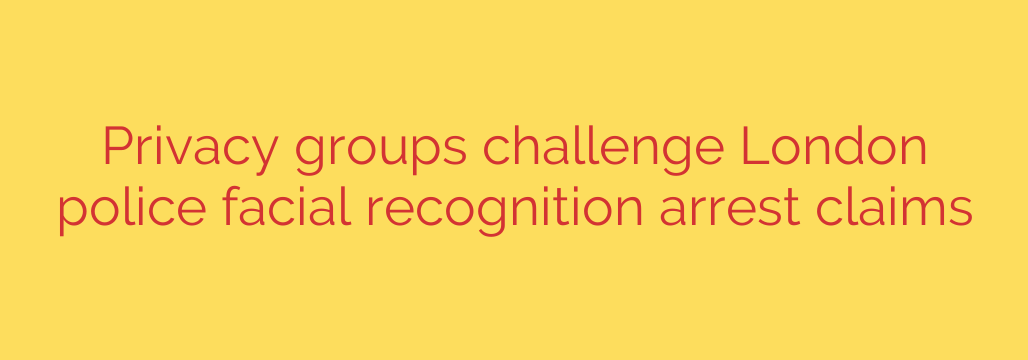
Live facial recognition (LFR) technology is rapidly appearing in public spaces, and its use by law enforcement is sparking significant debate. In London, the Metropolitan Police have deployed LFR, citing its potential benefits in identifying individuals wanted for serious crimes. However, claims about the technology’s success are facing rigorous challenges from privacy and civil liberties organizations.
Advocates are raising serious questions about the effectiveness and accuracy of the technology as used by the police. They are specifically challenging the statistical evidence presented by authorities to link LFR alerts directly to successful arrests and, more importantly, convictions.
The core of the challenge lies in the lack of transparency and detailed data surrounding LFR deployments. Critics argue that the police’s metrics may not clearly demonstrate that LFR is genuinely leading to arrests that wouldn’t have occurred otherwise. Concerns include:
- High Rate of False Positives: The technology can misidentify innocent people, leading to potential harassment and concerns about being unfairly flagged.
- Unclear Link to Convictions: Even if LFR generates an alert leading to an interaction, it’s often unclear if the alert itself was the decisive factor in a successful arrest and subsequent conviction.
- Impact on Civil Liberties: The pervasive nature of LFR raises significant concerns about mass surveillance and its chilling effect on public behaviour and the right to anonymity in public spaces.
- Lack of Independent Evaluation: Critics call for more robust, independent analysis of LFR’s performance and impact outside of police evaluations.
This scrutiny highlights the broader tension between using powerful surveillance technologies for security purposes and protecting fundamental privacy rights. As facial recognition becomes more widespread, ensuring its use is proportionate, effective, necessary, and subject to strict oversight and public accountability is crucial.
For anyone concerned about digital privacy and surveillance, understanding how technologies like LFR are being used and advocating for transparency and robust safeguards is increasingly important. The challenge to the police’s claims in London underscores the need for ongoing public debate and rigorous evaluation before widespread deployment of such intrusive technologies.
Source: https://go.theregister.com/feed/www.theregister.com/2025/07/09/big_brother_watch_met_lfr/








